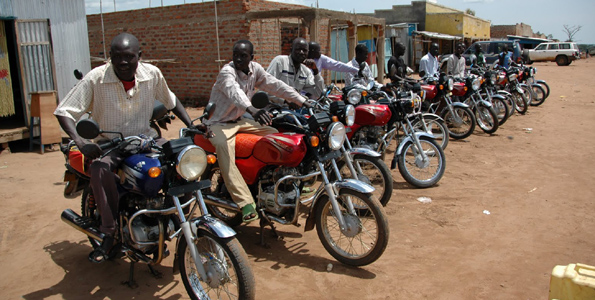- The Daily Brief, by The Kenyan Wall Street
- Posts
- Fix it, fast! Or else...
Fix it, fast! Or else...
Kenya's #1 newsletter among business leaders & policy makers
Hi there! It's Brian from The Kenyan Wall Street.
Here are our top business stories today:
INSURANCE
Hospitals to SHA: Fix It, Fast!

Private hospitals in Kenya are threatening to pull the plug on the government’s Social Health Authority (SHA) over KSh 30 billion in unpaid debts and a glitchy system. Decade-old NHIF arrears still haunt hospitals, leaving empty pharmacies, unpaid consultants, and bank loans piling up like overdue prescriptions. RUPHA isn’t mincing words—if the government doesn’t pay up, patients will be left out in the cold. The SHA portal, meant to streamline healthcare, is more of a health hazard itself, with 83% of facilities facing verification hiccups and 89% stuck in downtime limbo. Only 46% of providers have been paid, while smaller community health centers remain ghosted by the system. To turn up the pressure, hospitals now threaten to cut off services to civil servants under the MAKL program unless debts are cleared. The government preaches patience, but for hospitals on life support, time’s running out.
Bottom line: Unpaid billions and bad tech—Kenya’s healthcare hits breaking point.
Today's Poll
Do you think the government will be able to solve SHA's challenges or the scheme is conceptually flawed thus unsalvageable? |
Yesterday's Poll Results
Do you think the proposed Boda Boda bill will solve the problems ailing the sector?
🟩🟩🟩🟩🟩🟩 Yes (65.52%)
🟨🟨🟨⬜️⬜️⬜️ No (34.48%)
⏱️ Also Watch
The government is developing an algorithm that will enable the Social Health Authority (SHA) system to access data like mobile money transactions and tax records from various state agencies to nab those paying lower premiums than they are supposed to.
INVESTMENTS
KUSCCO Collapse: Members’ Assets on Auction

KUSCCO, Kenya's top SACCO umbrella body, is in hot water, auctioning members' properties to cover massive financial holes. An internal audit revealed a jaw-dropping KSh 12.5 billion loss due to fraud and mismanagement, leading to arrests and leadership shake-ups. The crisis snowballed after panic withdrawals crippled its Central Finance Facility between late 2023 and early 2024. As the scandal deepens, member SACCOs are left nursing heavy losses, forced to write off their investments. Properties in prime areas like Kileleshwa, Kitengela, and Mombasa are now on the auction block. Government probes continue, exposing more cracks in KUSCCO’s shaky foundation.
Bottom line: Mismanagement sinks KUSCCO, members pay the price.
TOURISM
Kenya’s Tourism Trailblazes Toward Billion Boom

Kenya's tourism sector is riding a winning wave, raking in KSh 452.2 billion in 2024—a 19.79% boost from the previous year—and aiming for a whopping KSh 560 billion in 2025. International tourist arrivals soared to 2.39 million, with the USA leading the charge, while Uganda and Tanzania trailed closely behind. MICE tourism (Meetings, Incentives, Conferences, and Exhibitions) proved it's more than just business, attracting 37,405 international delegates and giving Kenya’s hospitality sector a solid 27% of total arrivals. Tanzania topped the "most improved visitor" list, but China and the USA weren’t far behind, proving Kenya’s global appeal is as diverse as its wildlife. Bed-night occupancy hit nearly 10 million, as both international and domestic tourists snuggled into Kenya’s accommodations, marking a 16% increase. With plans to fine-tune its ETA system and a clear vision for sustainable growth, Kenya is setting the stage for a tourism jackpot in 2025.
Bottom line: Kenya’s tourism is booming—next stop, KSh 560 billion!
CAPITAL MARKETS
Kenya Courts Capital, Debt Lingers On

Kenya and South Africa led Africa in private capital deals in 2024, with 83 and 84 transactions respectively, driven by strong interest in financial services and industrial sectors. Kenya saw major investments, including $50M for I&M Group and NCBA Group, alongside renewable energy boosts like SunCulture's $27.5M Series B raise. Private debt transactions surged 30%, with investors eyeing high-growth sectors despite navigating currency risks and global market uncertainties. Key reforms in Kenya’s monetary policy and strategic Eurobond buybacks bolstered investor confidence and market stability. The EU Economic Partnership Agreement boosted Kenya’s exports, though credit downgrades by major agencies highlighted fiscal concerns. Looking ahead, steady GDP growth, controlled inflation, and stable currency offer optimism, despite debt burdens and climate risks.
Bottom line: Kenya stays resilient, but debt shadows growth.
News Desk
Commentary
Building a business is not about being the best at something; it is about being the best at learning and adapting…
Have a good evening!



